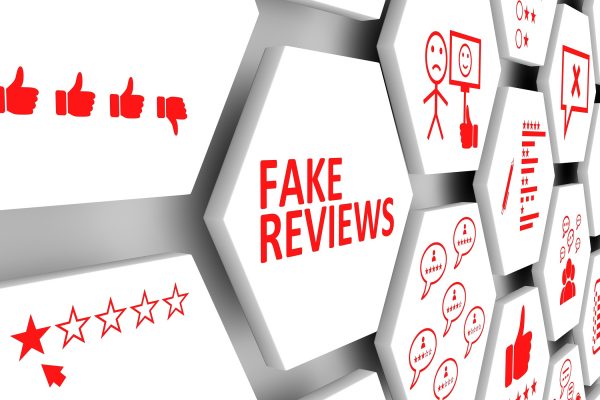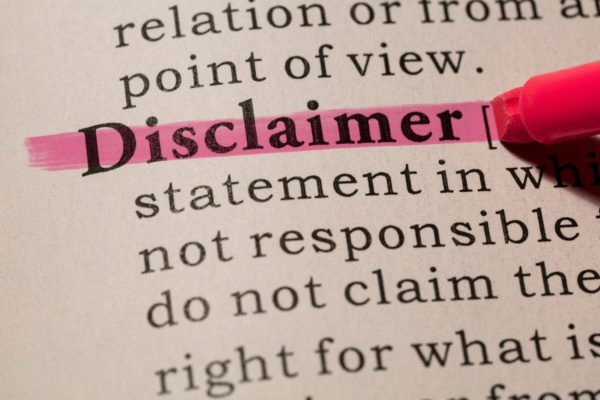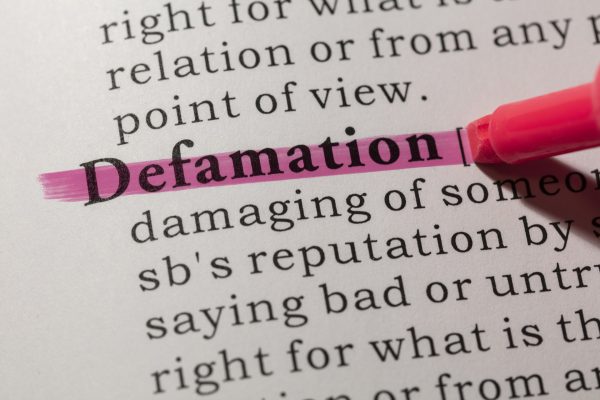Defamation falls broadly into two types…“Libel” and “Slander”
People often think of the difference by connecting the “S” of “Slander” with the “S” of “Speech” or “Spoken” and so you will often hear people say that slander is spoken and thus libel is in writing. For the most part that can be a correct conclusion but not always so. The distinction is one of “permanence”. Therefore, if speech is recorded and thus capable of being replayed time and time again (whether it is or not) then that speech is likely to be considered libel(ous) rather than slander(ous).
But when an online review is written then its content will have the potential to be libellous provided it meets the following – very important – criteria.
It has to be published and so if you are having dinner with your partner then no matter what is said no defamation can exist because the comments have to be made in the presence of others or be capable of being read by others. Stand up and say those same comments in front of a room full of guests however and the potential for defamation could well exist.
The REPUTATION of the “victim” has to be adversely affected by the comments. Insults do not fall into that category – generally speaking – because injured feelings alone do not amount to defamation. So someone writing that “Jason Williams has the face of clown and the body of an elephant” may hurt his feelings but it is not sufficient to amount to defamation.
Similarly, a statement in a newspaper such as “the referee was terrible today” is not defamatory. Saying that he was “clearly corrupt and no doubt getting backhanders” would, however, fall into libel – unless it happened to be accurate of course! This is because statements of opinion as to performance as unlikely to be defamatory.
You cannot be defamed for statements that are actually truthful. But what is truthful?
A customer may leave a review to say “I was treated appallingly” or “the manager was very rude to me”. Now, you may wholly disagree with that but such comments are very subjective and won’t be considered libellous or slanderous.
Often the best way to deal with such matters is to do whatever you can to post a reply to the comment. The worst thing you can write though is something along the lines of “Get those slanderous words off my website or I will get my lawyers on to you and they will sue in you court for thousands.” To begin with it will show that you know nothing about defamation but it also makes you out to be the aggressor.
People will read such a comment and assume that if that is your attitude then why would they want to do business with you? Instead, use it as a chance to show that you are a really customer focused garage.

Leading experts in print, promotional clothing, staff uniforms, branded merchandise and PPE. Involution is your brand partner for promotional marketing and workwear, a one-stop-shop for your branded marketing needs for any business size and industry.
So if someone complains online about a faulty car or poor customer service. Simply correct them. Say something like “We dispute your version of events and have attempted to contact you on a number of occasions but we either keep missing each other or it would appear that you have not returned our calls. However, do feel free to make contact again or come to see us and we will happily go through your concerns – as we will always do what we think is right for the customer but, at the same time, which is fair on us too”.
I would suggest not entering into repeated online dialogue if you can help it but if the writer has, for example, had repairs done elsewhere and is not coming back yet asserts various issues then you may wish to invest some time in explaining why you disagree with what was written. Explain anything that you have done to investigate, assist or contribute. Do so in way that reflects well on your business even if it has the consequential and indirect effect of making your customer appear unreasonable.
A carefully worded response to a bad review is often far more advantageous to the garage than one which is either met with aggression, met with ultra-defensiveness, being ignored or demanding it to be removed. Rightly or wrongly, a demand for removal is often perceived as an admission that you have something to hide.
We often get requests to write to someone who has posted an online review demanding they remove certain comments. Only very exceptionally do we do so for it allows the reviewer to comment “I gave the garage feedback and the next thing I know I get a letter from their lawyers”. Fighting fire with fire is often not the best thing in this regard as again the garage owner may come across as being “heavy handed”.
Sometimes though it is advisable to complain directly to the web provider where clear defamation is evident such as a statement that is false stating “these guys clock all cars on their forecourt, are illegal immigrants who set out to con you”. In the light of such a comment the web host or provider can themselves be sued for defamation if they allow such a comment to remain following a legitimate complaint. Hence they often act quickly!
The threat by a garage to sue for defamation based upon someone writing a bad review is almost certainly going to be a futile threat. To sue for defamation can be an expensive, time consuming process and if the writer simply has no funds to pay then the person bringing the legal action will almost certainly be the one out of pocket even if they “win”.
Moreover, Lawgistics are not specialists in bringing actions for defamation – you will need to engage a specialist (and therefore probably very expensive) defamation lawyers and quite frankly it simply won’t pay dividend for a garage to take it that far.
You have to bring actions for defamation through the High Court, not the County Court system and how does one estimate the extent of financial loss.
A famous sportsman who is defamed can estimate his losses by, for example, by the value of all the lucrative sponsorships that suddenly cut ties with him. But how does a garage – one of thousands in the UK – go onto quantify the extent of the loss of custom – when car sales are notoriously unpredictable?
Unfortunately, you cannot include a term in your contract with a customer that they are not allowed to leave a bad review – it has been attempted and a court threw out that contractual term.
Where a fake review is in place – i.e. where the writer has never actually had an experience with the trader at all, that trader can take a civil action for “malicious falsehood” which is another, less commonly known, arm of defamation but the same obstacles of expense v reward again make legal action prohibitive to the majority.
However, as this becomes more widespread so might there come a time in the not too distant future where those reviewers could be brought to prosecution. It would probably only take a few prosecutions coupled with publicity to reduce this problem significantly.
In a nutshell the best thing to do when confronted with a bad review is to respond to it in a way that highlights the positives that you have done for them. If there simply are no positives be contrite, apologise, vow to learn and to improve – and then do just that!








